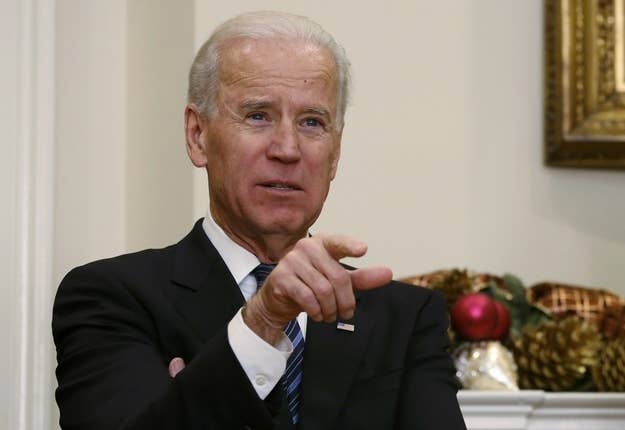
WASHINGTON — Late Monday night, just hours before the calendar turned to a new year, Vice President Joe Biden and Senate Majority Leader Harry Reid met with Senate Democrats for an hour and a half to convince them to vote for a fiscal cliff compromise.
Despite an estate tax and sequester extension that fell short of what Democrats wanted — and that many perceived as major concessions to Republicans — the last-minute pitch worked.
“For the first time in years, we will have a major issue settled with a bipartisan vote,” Sen. Feinstein noted after the meeting.
Sen. Chuck Schumer conceded that the compromise, while supported by most Senate Democrats, was neither "great nor loved."
Nevertheless, he said, “The number of people who think we should go over the cliff rather than vote for this is very small."
In particular, Democrats would have preferred a longer sequester extension — in part because the new deadline will coincide approximately with the reprised debt ceiling negotiations in February or March.
The compromise left Senate Democrats ultimately supportive, but not enthused; many thought the White House had ceded unnecessarily to Republican demands.
“It’s what we could get," said Reid's spokesperson Adam Jentleson.
And while the White House sold the sequester deal as a "victory," Senate Democrats hedged. “We’ll call it positive progress,” Jentleson said.
To help shore up support for the deal, Biden arrived at the Capitol shortly after 9 p.m. to meet with Reid and other Senate Democrats.
Afte the meeting, a reporter asked Biden what his selling point had been to the conference.
"Me," Biden responded frankly, smiling broadly.
According to multiple senators, Biden had also assured the conference that the White House would not permit a fight over the debt ceiling early in 2013.
Speaking to reporters afterward, Biden said he felt "very, very good" that the Senate would approve the deal, and Reid told reporters he expected a vote late Monday night or early Tuesday morning on the package.
But whether Speaker John Boehner can actually muster the votes to pass the deal in the House was very much an open question late Monday night.
Shortly after Democrats concluded their meeting, House Republican leaders echoed their promise to "consider" the bill, falling short of a promise to bring it to a vote or actually push for its passage.
Indeed, in a statement released by Boehner's leadership team, they even left open the possibility of further amendments, which essentially kill the deal.
“The House will honor its commitment to consider the Senate agreement if it is passed," Republican leaders said in a statement. "Decisions about whether the House will seek to accept or promptly amend the measure will not be made until House members -- and the American people -- have been able to review the legislation.”
